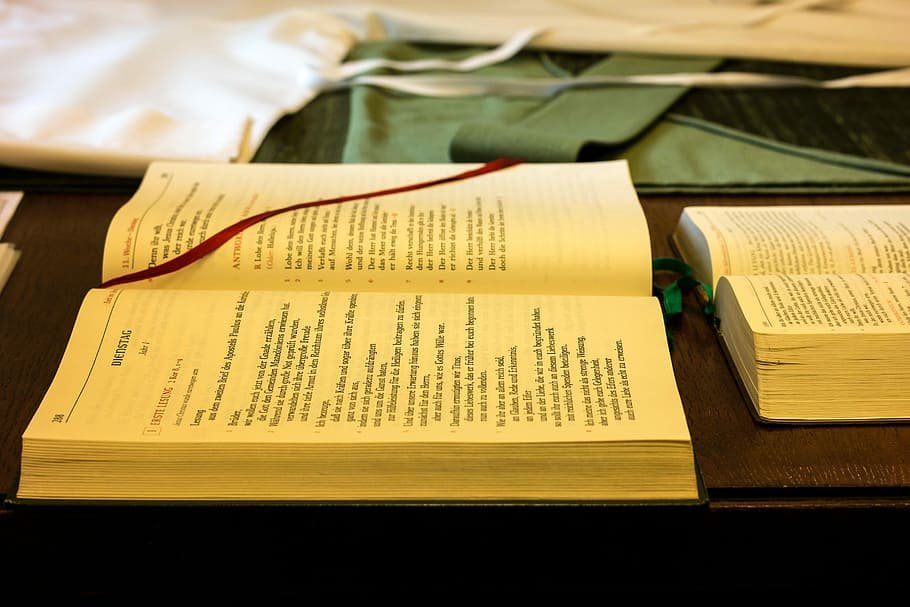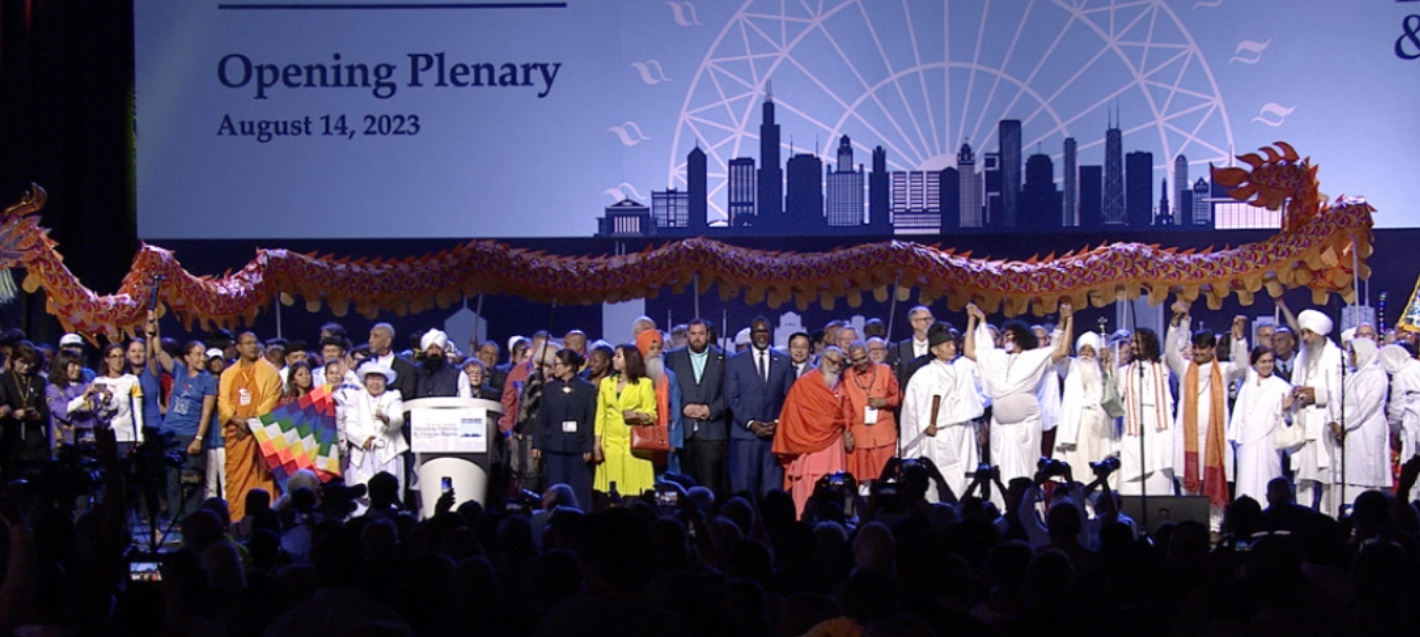September 2023 Interfaith News Roundup
by Paul Chaffee
The Interfaith News Roundup is a monthly publication of The Interfaith Observer. Paragraph by paragraph the Roundup summarizes major religion/interfaith stories that are underreported. Each paragraph is linked to the full story it introduces.
If you’d like to receive the Roundup monthly, you can sign up for our mailing list here.
Congregational Business
Photo: Wallpaper Flare
The Common Lectionary is a collection of scriptural readings for each day of the year. Congregations which follow the Lectionary take comfort and support from the fact that thousands of other congregations are reflecting on the same pages for weekly worship.
That said, the sharing comes in the form of more than 700 complete translations of the Bible, about ten percent of, some 7,100 languages that are spoken around the world. Now two professors from the University of Southern California are working with Wycliffe Bible Translators to use electronic tools to improve the efficiency and accuracy of the hundreds of Christian and Jewish scriptural translations currently being written. The project is called the Greek Room. Its purpose is “to improve the quality and efficiency of Bible translation with software tools.”
Scripture translation is but one religious arena currently utilizing A.I. (artificial intelligence). A new program called ChatGPT allows a computer to produce an article or book or sermon in mere seconds. Adventurous congregations are testing out the impressive results, though the result “lacks a soul,” one pastor complained. Meanwhile, a dozen major news organizations, including the New York Times and CNN, have added code to keep ChatGPT from accessing their files.
Women are becoming a growing influence in promoting right-wing religion. On June 29, 650 Moms for Liberty, an anti-Black, anti-LGBTQ organization, gathered for a four-day conference in Philadelphia to hone their skills. Their “Leadership Institute was founded to professionalize conservative activists, teach them how to fundraise, strategize, give them media training, and present a polished image while advancing rightwing causes.”
We are being repeatedly reminded these days that a single act of malice can reap untold tragedy. Scandinavian extremists have burned copies of the Quran in Sweden and Denmark several times this year. The anti-Muslim gestures inspired the burning of 26 Christian churches in Pakistan, along with numerous Christian homes.
By the way, opponents of rightwing religion, particularly Christian nationalism, are now organizing.
Photo: ChurchSpace Instagram
In post-Pandemic America, Pew Research notes that smaller congregations are closing their doors, and many of their members are now attending large megachurches, approximately 1,800 congregations defined as having more than 2,000 members. ChurchSpace is a new company connecting churches with local businesses interested in booking underused church spaces! The founders Day Edwards and Emmanuel Brown grew up with a passion to do two things; build better communities and help find solutions that relieve church leaders of their many financial burdens. While church sharing isn't a new concept, Church Space gives them the opportunity increase their impact. In the words of the founders: “We don't want to reinvent the wheel. We prefer to help churches and communities take their existing resources and make them more viable options for everyday community living.”
Michael Lovegood, raised in a conservative Appalachian home, began writing songs about Jesus when he was nine. Not long afterward he began to confront the fact that he is gay. He continued to write religious songs and, over the years became a drag-queen named Flamy Grant. Flamy uses ‘she/they’ pronouns to refer to herself. She no longer attends church but she continues writing religious music distributed on Christian music audiences. She explains that she wants to give comfort to gay kids who are unaccepted in their own families and churches.
What Made this Parliament Different
For five days this past August, more than 7,000 religious and spiritual leaders, along with dedicated interfaith activists representing some 212 traditions, gathered in Chicago. They came to pursue “A Call to Conscience: Defending Freedom & Human Rights.” Hundreds of workshops, panels, performances, plenaries, exhibits, public ceremonies, and field trips kept participants occupied. In your spare time, you could meander through an exhibit hall full of booths distributing program descriptions, merchandise, and resource materials. The Sikh community took it upon themselves again to provide lunch each day for everyone, the astonishing Sikh practice of langar.
In many ways this year’s events resembled earlier “Modern Parliament” events … the 1993 Chicago gathering commemorating the 100ths birthday of the historic 1893 event. Then came Cape Town, Barcelona, Melbourne, Salt Lake City, and Toronto, as well as a 2021 virtual Parliament.
This year’s subject matter included unpacking ‘authoritarianism’ in its various guises. Considerable time was given to subjects such as the climate crisis, caste, LGBTQ+ issues, protecting the Amazon, and opposing nuclear weapons. UNEP (United Nations Environment Programme) and URI (United Religions Initiative) took the occasion to announce their agreement to collaborate. The goal? To leverage the wisdom, power, and influence of faith-based and spiritual communities in mobilizing the public in environmental awareness and action.
All told, this August may have looked like earlier Parliaments – and yet this year’s return to Chicago was significantly different from its predecessors: specifically, in terms of the audience. Parliament fans have long bemoaned the failure of media and the press to cover interfaith issues in general and the Parliament in particular. That changed in Chicago this year. The word is getting out.
The Parliament was mentioned in over 1,000 news platforms around the word. Social media played a major role in exposing the Parliament and attracting participants from 95 countries. Considerable coverage came from the likes of CNN, the Washington Post, Religious News Service and dozens of others. NPR was one of several news sources that published a series of stories on Parliament 2023. Numerous sessions were broadcast over the internet live, videotaped, and now available for viewing.
One way or another, 2.5 billion people were touched by some aspect of the event, reports the Parliament. In short, the interfaith universe is becoming available to the general public in powerful new ways.
Beyond Community, Beyond Death
In most traditions, the life of faith and practice tends to be explored mostly within community. The Parliament of the World’s Religions is proof positive that interfaith proponents thrive in community.
Photo: Unsplash
At the same time, what you believe and how you behave is deeply personal, unique with each one of us. Increasing numbers of us have made the choice to stay away from “religious” communities. Thirty percent of Americans self-identify as having no religious affiliation. The Washington Post recently published Perry Bacon Jr’s essay titled “I left the church – and now long for a ‘church of the nones.” It is an honest, moving memoire about a spiritual search by someone you’re not apt to run into at your local congregation.
Another arena where relatively few traditional religious leaders have much to say, is life after death, a subject which recently attracted Pew Research. Here is what they found:
“Around half of U.S. adults (53%) say they’ve … been visited by a dead family member in a dream or some other form. And substantial shares say they’ve had interactions with dead relatives in the past 12 months:
34% have “felt the presence” of a dead relative
28% have told a dead relative about their life
15% have had a dead family member communicate with them
In total, 44% of Americans report having at least one of these three experiences in the past year.”
For me, this research leads to mystery. But it is a mystery which depends on some kind of dialogue with the deceased. And dialogue is the first step towards community.
Header Photo: Unsplash






